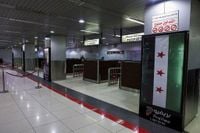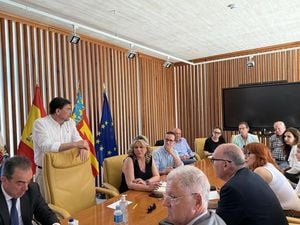In a significant move aimed at revitalizing Syria's economy, Saudi Arabia and Qatar have pledged to pay off Syria's $15 million debt to the World Bank. This decision, announced recently, is expected to unlock millions of dollars in aid and support the new Syrian government as it seeks to restore a nation ravaged by years of civil war. This payment marks the first financial assistance to Damascus from Riyadh since the fall of the Bashar al-Assad regime in December 2024.
The joint payment will enable the World Bank to resume its support and activities in Syria after a hiatus of 14 years. It is anticipated that this will provide the new Syrian government with access to crucial financing and technical support necessary for rebuilding institutions and accelerating development efforts. According to a joint statement from both countries, this initiative is a vital step toward stabilizing the war-torn nation.
The Syrian government expressed "deep gratitude" for this gesture. In a statement from the Syrian Foreign Ministry, officials noted that this decision opens the door to enhancing cooperation with international institutions to tackle reconstruction and recovery issues. The ministry highlighted the urgent need for international support to address the challenges posed by the ongoing economic crisis.
Despite this positive development, the Syrian government still faces formidable obstacles in its recovery efforts. Nearly 14 years of conflict have left the economy in shambles, with entire sectors devastated. Reports indicate that over 90 percent of Syrians now live in poverty, and unemployment rates are alarmingly high, with one in four individuals unable to find work. The United Nations has highlighted these dire conditions, underscoring the need for immediate assistance.
The economic situation has been further exacerbated by the collapse of the Syrian pound, which plummeted from 50 pounds per US dollar before the war to approximately 15,000 pounds at the time of the regime's fall. This dramatic devaluation has severely limited the purchasing power of ordinary Syrians, making it increasingly difficult for families to afford basic necessities.
As the new government in Damascus navigates these challenges, hopes for a swift lifting of Western sanctions imposed on Syria have not materialized. While some countries, including the European Union and the United Kingdom, have eased certain restrictions, the United States has maintained a more cautious approach. Recently, the US issued a general license allowing some exceptions to American restrictions for six months; however, conditions remain in place, including demands to curb Iranian influence in the region.
On April 23, 2025, Ahmed ash-Sharaa, the new Syrian president, emphasized the need for the United States to lift sanctions, arguing that the rationale for these restrictions has diminished following the fall of the Assad regime. In an interview with The New York Times, he stated, "The sanctions have had a disastrous impact on the Syrian economy, virtually destroying entire sectors: agriculture, the economic sector, the financial sector, the service sector, and tourism." His comments reflect a growing frustration within the Syrian leadership regarding the international community's response to the ongoing crisis.
The discussions leading to Saudi Arabia and Qatar's pledge took place during meetings at the World Bank and the International Monetary Fund in Washington earlier this month. These meetings provided a platform for Syrian authorities to present their ongoing efforts to stabilize and rebuild the country, reduce poverty, and achieve long-term economic development. According to a joint statement from the Saudi finance minister, the managing director of the IMF, and the president of the World Bank, there was a collective recognition of the urgent issues facing the Syrian economy.
The statement also indicated a commitment among international partners to support Syrian authorities in their recovery efforts. This newfound collaboration could signal a shift in how the international community engages with Syria, especially as the new government seeks to establish itself and rebuild the nation.
As the situation evolves, the impact of Saudi Arabia and Qatar's financial commitment will be closely monitored. The success of these efforts will depend not only on the availability of funds but also on the ability of the new government to implement effective policies that address the pressing needs of the Syrian population. The road ahead is fraught with challenges, but this financial assistance could represent a crucial turning point in Syria's long journey toward recovery.
In summary, the commitment from Saudi Arabia and Qatar to pay off Syria's debt to the World Bank is a promising development that could pave the way for renewed international support and assistance. As the new Syrian government works to rebuild a shattered economy, the cooperation of regional partners and the lifting of sanctions will be vital in determining the nation’s future.




